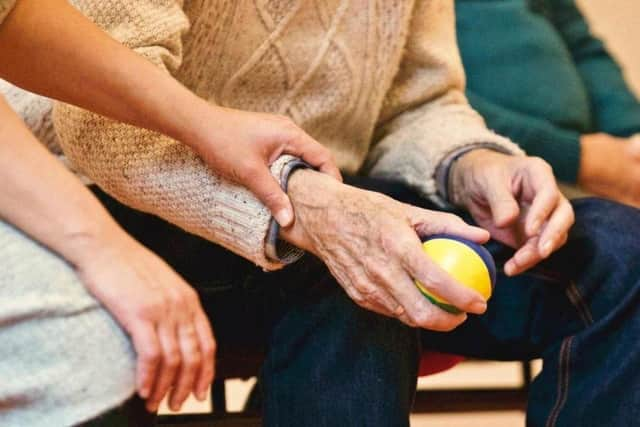Harrogate care costs climb to £54,000 a year as ‘colossal’ price rises bite
and live on Freeview channel 276
With care homes being hit by huge increases in energy and food prices, the average weekly cost of a residential care in the district is now £1,029.
That figure remains the highest in North Yorkshire and is equivalent to almost £54,000 a year.
Advertisement
Hide AdAdvertisement
Hide AdThe climbing costs come at a time of significant workforce pressures as care homes continue to rely upon agency staff and constantly recruit to try to fill vacancies.


Sue Cawthray, chief executive of care charity Harrogate Neighbours, described the price rises as "colossal" and said further increases in insurance costs and workers' wages were adding to the pressures of keeping care services running.
She added that the only way for care homes to be able to keep their costs down was for the government to provide more funding and support for services.
"There is a serious shortage of funding in health and social care", Mrs Cawthray said.
Advertisement
Hide AdAdvertisement
Hide Ad"This has been going on year after year and the situation is only getting worse as more people get older and need to go into care."
After years of funding cuts and promises to fix the broken care system, the government earlier this year announced a new £86,000 cap on the amount anyone will have to spend on care over their lifetime.
This was due to be funded by a 1.25% rise in National Insurance, however, the tax rise was reversed by prime minister Liz Truss and funding will now come from general taxation.
The price cap and other measures are to be tested out as part of a “trailblazer" scheme which has seen North Yorkshire County Council chosen as one of six local authorities to introduce the reforms several months ahead of elsewhere.
Advertisement
Hide AdAdvertisement
Hide AdThere are, however, questions over when this will begin next year and if it will entail a huge bill for the county council.
Aside from the trial, councillor Michael Harrison, executive member for health and adult services at the authority, said it was doing "everything possible" to support the care sector, although he added these efforts were being made "within the constraints of the funding allocated by central government".
“We continue to make the case to the government for comprehensive reform and funding of social care," he said.
“The council is implementing a three-year deal to address the actual cost of care provided by care homes, ahead of many other local authorities.
Advertisement
Hide AdAdvertisement
Hide Ad"We are now working with the sector on a similar long-term plan for home care."
Meanwhile, the council has further plans to build an extra care facility after purchasing a £1.8 million plot of land at Harrogate’s Cardale Park, and there are also proposals to introduce "micro-providers" in more rural areas.
Councillor Harrison added: “In the Harrogate area, we are pursuing several projects to try to improve market conditions, including identifying potential new opportunities to provide care directly.
"We are also hoping to see the introduction of micro-providers in rural areas and are working with care providers to pilot new workforce models, attracting people to the sector with the prospect of the rewarding careers which can result from caring for others."
Comment Guidelines
National World encourages reader discussion on our stories. User feedback, insights and back-and-forth exchanges add a rich layer of context to reporting. Please review our Community Guidelines before commenting.